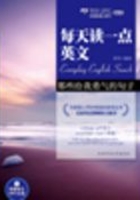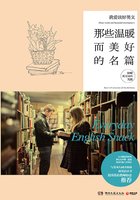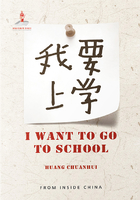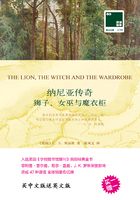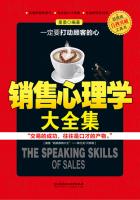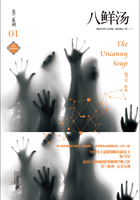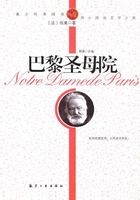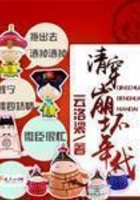了解信息
中西文化
曾经铁路在美国西部开发中发挥了关键性的作用。然而,美国铁路现在却慢慢被忽视,已经变得破旧不堪,难以和欧洲的铁路运输相比。“美铁”是美国国家铁路客运公司,提供全部的铁路服务。
典型对话
1.出 站 求 助
A:Oh, I see. By the way, how can I get out of the platform after I get off the train?
A:哦,我知道了。顺便问一下,我下车后怎么出站台?
B:That's very easy. The exit is always open.
B:那很容易。出口总是开着的。
A:Thank you for your help.
A:谢谢您的帮忙。
B:My pleasure.
B:乐意效劳。
2.询 问 检 票 处
A:Good! There's the information desk. How do we get to the fifth street, please?
A:太好了,问询处就在那儿。请问到第五大街哪一站下?
B:The Huayuan Bridge is what you want.
B:到花园桥下车。
A:How much is it?
A:多少钱?
B:3 yuan.
B:3元。
A:Which way do we go for the fifth street?
A:到第五大街从哪边走?
B:Just go through the No.6 ticket barrier over there. A train will be in directly.
B:走到那里过6号检票口,火车马上就要来了。
A:I appreciate it.
A:谢谢。
B:You're welcome.
B:不客气。
3.询 问 发 车 时 间
A:Excuse me. I'm still not sure when the train leaves and which platform I should go to.
A:打搅一下。我还是不清楚火车什么时候开,我该在哪个站台上车?
B:The train leaves at Platform 2 at 3:00 p.m.
B:火车在2号站台上车,下午3点发车。
A:And when shall I board the train?
A:我应该什么时候上火车?
B:Don't worry. The station announcement will inform you by air. Have a nice trip.
B:别担心。火车站的广播会通知您的。祝您旅行愉快。
4.乘 火 车 的 优 点
A:How shall we go to Amsterdam?
A:我们怎么去阿姆斯特丹?
B:I prefer to travel by train.
B:我想乘火车去。
A:By train? It'll take us a much longer time than by air.
A:乘火车?那路途时间可就比乘飞机长多了。
B:I've never made any distance travel by train in Europe. Each time I take a plane, so I want to see more of the continental landscape.
B:我在欧洲还从未乘火车长途旅行过,每次我都乘飞机,所以这次我想换一下。我相信乘火车更令人激动,我想看看欧洲大陆的风光。
A:Yes, it's nice indeed. The view along the railway is wonderful as the train passes farmland, mountains, rivers and woods, and you'll see the variation of the landscape.
A:是的,确实不错。火车驶过农田,穿过山区、树林,跨过河流,沿途的景色变化无穷,这主意真不错。
B:I feel very excited already. But I'm a little bit worried about the luggage.
B:我已经很兴奋了,但是我还是有点担心行李。
A:Don't worry. The continental rail sys tem has a perfect luggage service. The only thing you have to do is to claim your luggage at the destination.
A:不用担心。欧洲大陆的铁路行李托运服务很好。您只要在目的地取行李就是了。
5.列 车 用 餐 咨 询
A:Is there a dining car on the train?
A:请问列车上有餐车吗?
B:Yes. All trains in China have a dining car. The dining car on your train is just next to the soft berth section, and a variety of food is available during the trip.
B:有的。中国所有的列车上都有餐车。这趟车的餐车紧挨着软卧车厢。行车期间餐车提供多种口味的菜肴。
A:Great! Good meals and a sound sleep guarantee a pleasant journey. Otherwise you pay for suffering.
A:太好了!出门旅游就要吃得好,睡得香,否则就是花钱买罪受。
6.询 问 回 程 票
A:By the way, is it easy or not to get return tickets in Beijing?
A:请问,我们回程的车票在北京好买吗?
B:Well, you can take No.13 to get back. It's the same train. But it would be safe if you book tickets in advance. Have a happy journey, sir!
B:你们回来乘13次列车,就是这趟车。不过提早一点订票比较安全。祝您旅途愉快,先生!
A:Thank you for your advice. Goodbye.
A:谢谢您的建议。再见。
7.寻 找 站 台
A:Which train do I take for Wuhan, please?
A:请问到武汉,我该坐哪一趟火车?
B:21:48.
B:坐晚上9点48分的车。
A:When will it arrive?
A:什么时间到达?
B:It's due in at 7:16 tomorrow.
B:应当明天7点16分到。
A:Do I have to change?
A:要转车吗?
B:No, it's a through train.
B:不用,这是一趟直达列车。
A:Which platform do I want to, please?
A:请问,我该到哪个站台上车?
B:Follow the signs, you can't go wrong.
B:沿着路标走,你不会走错的。
Buying a Ticket买票
中西文化
乘火车旅行舒适、安全,而且还可以饱览沿途风光。在美国,列车的设备相当完备,餐车、浴室、理发厅、熨衣室一应俱全。列车车厢有客车和卧车之分,座位有等级差别。在欧洲,列车多分为一等和二等,列车进入或离开某国国境会有该国的出入境官员上车检查证件。乘车前如果要运行李必须先到行李托运处办理托运手续,办好后要妥善保管托运单。请搬运工帮忙要给小费。
典型对话
1.购 买 硬 座 车 票
A:Excuse me, could you tell me where can I get a round ticket to Shanghai?
A:打扰一下,请问哪里可以买到去上海的往返火车票?
B:Over there at Window 2.
B:在那儿的2号窗口。
A:Thank you.
A:谢谢。
B:You are welcome.
B:不客气。
A:One round ticket to Shanghai, please.
A:一张去上海的往返票。
C:A seat or a berth?
C:硬座还是卧铺?
A:How long will it take to Shanghai?
A:要多少时间到上海?
C:10 hours.
C:10小时。
A:Well, a little bit longer than I thought. I'd like to buy a seat.
A:好,比我预想的要稍长一点。我要硬座。
C:OK. 618 yuan.
C:好的。618元。
2.购 买 软 卧 车 票 (1)
A:Good morning, sir! Can I help you?
A:早上好,先生,能为您服务吗?
B:Good morning! I'd like to buy two tickets to Beijing for Oct. 14th.
B:早上好!我想买两张10月14号到北京的火车票。
A:Yes, sir. We have many trains going to Beijing, fast train, through train, express train and tourist train. Which train do you prefer?
A:好的,先生。我们有很多趟去北京的火车,普快、直快、特快和旅游列车。您要哪一趟?
B:Well, the express one, with air conditioning.
B:我要直达快车,有空调的。
A:Then you'll have two choices. Train No.14 leaves at 6:00 p.m, and Train No.22 leaves at 8:00 p.m.
A:这样的话我们有两趟列车,14次列车晚上6点开车,22次列车晚上8点开车。
B:When will they arrive in Beijing?
B:它们什么时候到北京?
A:They will arrive the next morning, at 8:00 a.m. and 10:00 a.m. respectively.
A:它们都是第二天早上到达。时间分别是早上8点和10点。
B:In that case I think Train No.14 will be better. We can do more sightseeing in Beijing.
B:那14次比较好,我们可以有更多的时间在北京观光。
A:Right. Train No.13 and No.14 are the best trains between Beijing and Shanghai. Which seats do you prefer, cushioned seats, ordinary seats, cushioned berth, or ordinary berth?
A:是的。13次和14次是京沪线上最好的列车。 您要什么铺位?软座、硬座、软卧还是硬卧?
B:Two lower berths on a cushioned sleeper, please.
B:我要软卧,两张下铺。
3.购 买 软 卧 车 票 (2)
A:Where are you going by train?
A:你到哪儿去?
B:I want to take a train for Beijing?
B:我想到北京去。
A:Which kind of trains do you like to take, passenger or express train?
A:你想乘哪种车? 快车还是慢车?
B:I'd like to take express train. How many express trains leave for Beijing daily?
B:我愿坐快车。请问去北京的直达列车每天有几次?
A:Twice a day. Train No.12 special express and No.16 express train.
A:每天有两次,12次特快列车和16次特快列车。
B:When does the train start? And when will it get to Beijing?
B:列车什么时候开? 什么时候到北京?
A:Train No.12 leaves at 8:00 a.m. and arrives at 9:30 a.m, No.16 leaves at 12:30 and arrives at 14:00.Train No.12 is half an hour faster than No.16.
A:12次开车时间是8点,到达时间是9点30分。16次开车时间是12点半,到达时间是14点。12次比16次快半小时。
B:How much is the soft berth for each?
B:软卧票多少钱一张?
A:83.60 yuan.
A:83.60元。
B:How many beds are there in the compartment of soft berth?
B:软卧几人一间?
A:Generally there are four beds in a compartment, but in special cases, there are two.
A:一般是4人一间,个别的也有两人一间的。
B:I want to reserve two soft berths on train No.12.I would like two lower berths.
B:我订12次的软卧票两张。最好能订到两张下铺的。
A:I will try my best to get them. Please come and get the tickets at five in the afternoon. Here are your train tickets for the two bed compartment. The berths are No.11 and 12, the upper and lower berths in compartment No.6.
A:我们尽量争取,请下午5点来取票。这是你的车票,是两人一房的。铺位是6室11、12号,上下铺。
4.购 买 单 程 票 (1)
A:Where to, Miss?
A:小姐,您去哪?
B:A one way ticket to Beijing, please.
B:请给我一张去北京的单程票。
A:How many tickets did you say just now?
A:小姐,您刚才说几张?
B:Just one, please.
B:就一张。
A:305 yuan.
A:305元。
B:Here you are.
B:给您。
5. 购 买 单 程 票 (2)
A:Next, please. Where to go, sir?
A:下一位。先生,请问你要到哪儿去?
B:A one way ticket to Chicago, please.
B:请给我一张芝加哥的单程票。
A:How many did you say, sir?
A:先生,你刚刚是说几张票呢?
B:One adult, please.
B:一张成人票。
A:That will be six dollars fifty cents.
A:那要六美元五十美分。
B:Thank you.
B:谢谢你。
6.购 买 往 返 票 (1)
A:Do you want to buy a single or a round trip ticket?
A:你想买单程票还是双程票?
B:What's the difference?
B:有什么区别?
A:A round trip ticket could save you 15% of the fare.
A:双程票可以节省15%的车费。
B:OK. Give me a round ticket.
B:好的。我买双程票。
7. 购 买 往 返 票 (2)
A:How much is it for a round trip ticket to Los Angeles?
A:到洛杉矶的往返票多少钱?
B:How many people will be traveling with you?
B:和你同行的有几个人?
A:It will be just me.
A:只有我一个人。
B:The tare is 150 dollars. Would you like to purchase the ticket now?
B:票价是150美元。你现在要买票吗?
A:Yes. How many hours will it take?
A:是的。到那里要几小时?
B:The team will stop in Phoenix for several hours. So the total trip will take eight to ten hours.
B:火车会在凤凰城停好几个小时。所以总共要开8~10个小时。
A:Wow, that long!
A:哇,要那么久!
8.购 买 头 等 车 票 (1)
A:Please give me a single ticket to New York.
A:请给我一张去纽约的票。
B:Which class do you want, first class or second class?
B:你想要哪一等,头等还是二等?
A:What's the difference?
A:有什么区别?
B:The first class is more enjoyable, but it costs more.
B:头等比较享受,但是票价贵一些。
9.购 买 头 等 车 票 (2)
A:Are there any first class seats available to Suzhou?
A:还有到苏州的头等车票吗?
B:Yes, single or return?
B:有,要单程票还是往返票?
A:Single, please.
A:要单程票。
B:A soft seat or hard one?
B:要软席票还是硬席票?
A:A soft seat, please.
A:要软席票。
B:When?
B:买何时的票?
A:The day after tomorrow.
A:后天的。
B:How many tickets do you want to have?
B:你要买几张票?
A:Two.
A:买两张。
B:OK.
B:好的。
10.车 票 优 惠
A:Do you have any change?
A:你有零钱吗?
B:No.
B:没有。
A:Oh, we'd better have a magnetic fare card. Then, we don't have to prepare coins every time we get on the subway. Moreover, it has a discount if we use a magnetic fare card.
A:噢,我们最好买张磁卡。那么,我们每次乘地铁时就不用准备硬币了。而且,用此卡车费还有折扣的。
B:Really? It's a good idea. Let's go to the information desk and ask where we can buy it.
B:真的吗?这是个好主意。让我们去问讯处问问哪里可以买磁卡吧。
Boarding a Train上车
中西文化
自从20世纪40年代以来,随着越来越多的人乘汽车或飞机旅行,在美国乘坐火车的旅客人数骤减。现在,铁路运载的旅客占全美实际旅客的人数不足1%。但在其他国家,如中国、印度、日本及大部分欧洲国家,人们还是主要依赖火车出行。
典型对话
1.站 台 发 车
A:Excuse me, I am not sure when the train leaves and which platform I should go to.
A:打扰一下,请问火车什么时候在哪个站台发车?
B:It leaves at 3:05 at No.5 platform.
B:3点零5分在5号站台发车。
A:When should I board the train?
A:我应该什么时候上车?
B:The station announcement will tell you by air. Listen carefully, please.
B:车站会广播通知的。请仔细听。
A:Thanks.
A:谢谢。
B:You're welcome. Enjoy your trip.
B:不客气。祝您旅途愉快。
2.靠 窗 座 位
A:There's only five minutes left. Let's hurry.
A:只有5分钟了,我们快走吧。
B:Which car are we in?
B:我们是几号车厢?
A:No.28.Look, over there. It's at the very end of the train.
A:28号车厢。看,在那儿,最后的那节车厢。
B:Here we are. Let's get in.
B:到了。我们上车吧。
A:Please. Our seats are No.9 and 10.It's nice that we've got a window seat. Please take that seat so that you can have a good view of the landscape.
A:我们的座位是9号和10号。太好了,我们有个靠窗的座位。请坐过去,可以好好地看看风景。
B:It's so considerate of you. Where shall we put our suitcases?
B:您真是太体贴人了。行李箱放哪儿呢?
A:On the overhead rack. Oh, it's full. Put them under the seat.
A:放到行李架上。哦,已经放满了。那我们就放到座位下吧。
B:The train is pulling out of the station.
B:火车开始出站了。
A:You'll see vast stretches of green fields in a few minutes... Look!
A:过不了多久,您就会看到一望无际的绿色田野……看!
B:What a view!
B:真是太美了。
3.车 上 用 餐
A:Does this train carry a dining car?
A:这辆火车带餐车吗?
B:Of course. It is in No. 7 car. Just 2 cars backward.
B:当然。在7号车厢。往后走两节车厢。
A:What time will dinner be served?
A:什么时候供应晚餐?
B:About an hour later.
B:大概一小时后。
A:Thanks.
A:谢谢。
4.确 认 车 次 (1)
A:Lucy, the train is just about to leave. Let's get on the train.
A:露西,火车马上要开了。让我们上车吧。
B:Are you sure it is the right train?
B:你确定是这辆车吗?
A:Let me see. Yes, it's Train 159, leaving for Beijing.
A:让我看一下。是的,这是159次列车开往北京的。
B:OK. Hurry up. The bell is ringing. It will leave at any moment.
B:好,赶快。铃响了。车随时都会开动的。
5.确 认 车 次 (2)
A:Excuse me. Is this the train to New Jersey?
A:请问,这是去新泽西的火车吗?
B:No, it isn't. This is the train to New York.
B:不是的。这是开往纽约的车。
A:Oh, I see. Is that train to New Jersey?
A:噢,我明白了。那辆车开往新泽西吗?
B:No, that's Train 218, to Miami. Are you a New Jersey passenger?
B:不是的,那是218次列车,开往迈阿密。你是去新泽西的乘客吗?
A:Yes, I am.
A:是的。
6.匆 忙 赶 车
A:We are about to miss the train. Hurry up!
A:我们要赶不上火车了。快点。
B:Hold on. I haven't heard the whistle, so there's still time left.
B:别急,我还没听到吹哨声。我们还有时间。
A:Which car are we in?
A:我们在哪节车厢?
B:Let me see. No.17.
B:让我看一下。17节车厢。
A:Oh, my! It is in the very end of the train.
A:噢,天哪。在火车的尾部。
B:We have no choice.
B:我们没有选择。
A:Here we are. Let's get in.
A:到了。我们赶快上车吧。
B:Seats No. 20 and No. 21. It's nice we have a window seat.
B:座位号是20和21。真好,有一个靠窗的座位。
A:But I prefer the aisle seat here.
A:但我喜欢这个靠走廊的座位。
B:Take whatever you like. Let's put the suitcase on the rack.
B:你随便坐哪张座位都行。让我们把行李放在架子上吧。
A:Oh, the luggage rack is full. Put them under the seat for the time being.
A:噢,行李架满了。我们暂时先把行李放座位下面吧。
B:All right.
B:好的。
On the Train在火车上
中西文化
美铁是美国唯一的铁路客运公司。美铁在许多大城市如纽约、芝加哥、华盛顿等都有许多乘客。这些乘客大部分都是通勤者。其他的铁路旅客是度假的旅客。这些旅客不愿意驾车数千里来观光美国的风光,于是他们选择火车旅行,一边观看外边的风景,一边享受火车旅行。美国的火车很贵哦!
典型对话
1.车 上 补 票
A:Excuse me. May I see your ticket, please?
A:打扰一下,我可以看一下您的票吗?
B:I'm afraid I lost my ticket. Can I buy one again now?
B:恐怕我的票丢了。我现在可以再买一张吗?
A:Where are you going?
A:您要去哪?
B:I'm going to Beijing.
B:我要去北京。
2.交 换 座 位
A:Excuse me, would you like to change the seat with me? I'd like to the seat by the window.
A:请问,您愿意和我交换座位吗?我喜欢坐在窗边。
B:I'm afraid not. This seat is reserved for my wife. She is coming soon. You may ask her if she wants to change it with you.
B:恐怕不行。这个位子是留给我太太的。她马上就过来。你可以问问她是否愿意和您换座位。
A:Oh, OK. Madam, would you like the aisle seat?
A:噢,好的。夫人,您喜欢靠走道的位置吗?
C:Sorry, I prefer the window seat. I enjoy looking at the vast stretches of green fields outside the window.
C:对不起,我喜欢靠窗的座位。我喜欢欣赏窗外的大片绿地。
A:Oh, it is a pity. But never mind. Thank you all the time.
A:哦,真可惜。请不要介意。还是很感谢您。
3.车 上沏 茶
A:I've brought some mineral water and some tea. Which do you prefer?
A:我带了些矿泉水和茶,您喜欢喝什么?
B:Tea, please.
B:茶。
A:I'll go and fetch some water to make tea for you. There's a boiler between each carriage.
A:我去打些开水来沏茶。车厢连接处有开水炉。
B:Thank you and you are very kind.
B:谢谢,您太好了。
4.火 车 即 将 到 站
A:It's 6.The train will arrive at 6:30.
A:6点了。火车6点半就到了。
B:So we are almost there. It is not a long journey.
B:我们马上就到那儿了。旅途并不长啊。
A:Yes. Would you give me a hand to get the luggage down before it stops?
A:是的。你能在车停下来之前帮我把行李箱拿下来吗?
B:My pleasure. Is this the yellow one?
B:很乐意。是这只黄色的手提箱吗?
A:Yes. Thanks.
A:是的。谢谢。
5.火 车 暂 停
A:Do you know which station is this?
A:你知道这是哪一站吗?
B:I think it's Tianjin station.
B:我想应该是天津站。
A:Do you know how long will it stop here?
A:你知道要在这里停多久?
B:I suppose it will be 10 minutes.
B:我想应该要10分钟。
6.车 上 买 票
A:Where did you begin your journey?
A:您在哪里上车的?
B:At Washington.
B:华盛顿。
A:I see. Do you remember how much did you pay for your ticket?
A:我知道了。你还记得你当时付了多少钱吗?
B:I'm afraid not.
B:恐怕我记不得了。
7.餐 车 位 置
A:Do you mind if I open the window?
A:您介意我开窗吗?
B:Of course not.
B:当然不。
A:Do you know where the dining car is?
A:您知道餐车在哪节车厢?
B:I think it's in Car 7.
B:我想应该在7号车厢。
8.车 上 找 座
A:Excuse me. Is this seat taken?
A:请问这个位置有人坐吗?
B:I'm afraid this seat is taken.
B:恐怕有人坐了。
A:Oh, is it? Thanks anyway.
A:哦,是吗?谢谢。
B:You're welcome. Why don't you ask the conductor when he comes by? He should help you find one.
B:不客气。列车员过来时,你为什么不问一下他呢?他会给你找个座位的。
A:Thanks.
A:谢谢。
9.帮 忙 放 行 李
A:Let's go into this car, shall we?
A:我们进这个车厢可以吗?
B:All right. It doesn't seem crowded today.
B:好的。今天车厢里好像不太拥挤。
A:Now, let's settle the luggage. This suitcase should go on the rack. Could you do me a favor?
A:现在让我们把行李放好。这只箱子应该放到行李架上。你能帮一下忙吗?
B:Sure. Oh, it's really heavy.
B:当然。噢,这箱子好沉。
A:I'm sorry. My wife always packs a lot of things for me when I travel.
A:对不起。每次我旅行,我太太都为我准备好多东西。
B:It's nice to have such a good wife who prepares everything for you.
B:有一个什么都为你准备好的太太真好。
A:But I prefer to travel light.
A:但我喜欢轻装旅行。
B:Yes, me too. But it's always good to have someone worry about you.
B:我也是。但不管怎样,有一个人惦记着你是好的。
10.餐 车 开 饭 时 间
A:And by the way, what time will we get to Salt Lake City?
A:顺便问一下,我们什么时间到盐湖城?
B:We'll get in around 9 in the morning.
B:我们将在上午9点左右到。
A:Thanks. When does the dining car open for dinner?
A:谢谢,餐车什么时候开饭?
B:It opens as soon as the train starts.
B:火车一出发就开饭。
11.车 上 找 票
A:Excuse me, sir. Please show me your ticket.
A:对不起,先生。请让我看一下您的票。
B:Where is it now? I saw it when I was in the smoking section.
B:票哪儿去了呢,我刚才在吸烟车厢还看见了呢。
A:It's OK, sir. Take your time.
A:没关系,先生,不要急。
B:It's in my wallet. OK, here it is.
B:在钱包里!好了,在这儿。

